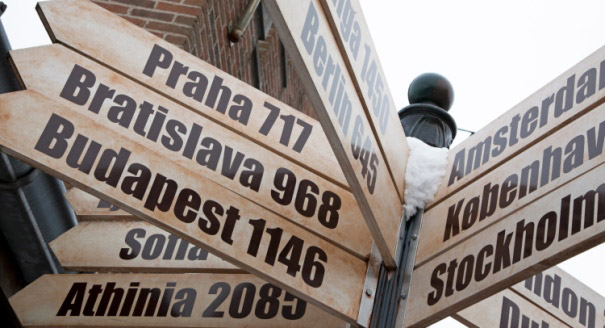On May 1, 2004, Poland’s embassy to the EU threw a terrific party. There were few speeches but—heavens!—was there a great deal of dancing, singing, and imbibing. The sense of relief and joy at Poland’s accession to the EU was infectious. Fifteen years after the peaceful demise of the country’s Communist regime, Poland was back in Europe.
Since then, and especially after Donald Tusk’s Civic Platform government took power in 2007, Poland has shown great commitment to the EU, its Eastern neighbors, and its security. So have Lithuania and Estonia, which joined the EU together with Poland and five other Central and Eastern European countries.
The same cannot be said for Hungary, Slovakia, Slovenia, or the Czech Republic. These countries have done little for the EU’s foreign and security policy. Most have failed to speak out for a more integrated Europe. Curiously, they have turned inward and often populist instead of taking pride in their EU membership and the values Europe stands for.
It is easy to blame the EU institutions and their weak leaders for this malaise. That, however, is an excuse to disguise how extremely reluctant most Eastern European leaders have been to think strategically about their own country’s place in the EU and the future of Europe’s security and defense.
The late Václav Havel, who was a steadfast and eloquent defender of political integrity, knew how much it meant for his country (he was the last president of Czechoslovakia and then the first of the Czech Republic) to rejoin Europe. For him, it was about stretching freedom, security, and integrity to their maximum. He had only contempt for intellectual laziness or, worse, those willing to compromise over basic, universal values.
In recent weeks, the Ukraine crisis has been the perfect example of how Central and Eastern European governments have not pulled together in a strong manner.
Poland has been at the forefront of trying to toughen the EU’s stance toward Russia. That is not because the Polish government is anti-Russian. It’s because Warsaw (along with Tallinn and Vilnius) understands how Europe’s post–Cold War borders have become vulnerable.
Poland had pursued a two-pronged strategy ever since the Soviet Union collapsed in 1991. One part of its approach was aimed at joining the Euro-Atlantic organizations of the EU and NATO. The other was designed to reach out to Poland’s Eastern neighbors, particularly Ukraine, and later Russia. Poland did not want a new Iron Curtain to be thrown down on its Eastern borders.
That is why successive Polish governments have worked hard to foster democracy in Ukraine—efforts that received little support from Brussels.
Warsaw, understandably, is immensely disappointed and frustrated about how Ukraine’s leaders squandered the 2004 Orange Revolution. Yet that did not deter Poland’s Foreign Minister Radek Sikorski, along with his French and German counterparts, from trying to broker an agreement during the height of Ukraine’s antigovernment demonstrations last February.
The reaction by Prague and Bratislava, Budapest and Ljubljana to the Ukraine crisis has been disappointing. Here was a chance to speak out loudly at home and in Brussels about what was at stake.
Slovakia, for example, had been dragging its feet for months over sending natural gas from west to east to reduce Kiev’s dependence on Russian gas. Bratislava delayed the deal because it did not want to jeopardize its own gas transit deal with Russian energy giant Gazprom, which sets restrictions on what happens to the gas even after it reaches Slovakia.
In Hungary, Prime Minister Viktor Orbán, a former dissident, has adopted stridently nationalist and Euroskeptic policies. At the same time, he has increased Budapest’s dependence on Russian energy through a big financial deal with Russia to develop Hungary’s nuclear power sector.
Several Western European governments have also shown little spunk over Russia. But that is not the point. Eastern Europeans have a special history and political experience that should give them a unique understanding of why the EU needs a strong security and defense policy. It is unfortunate for all of Europe that they have made no use of it.








